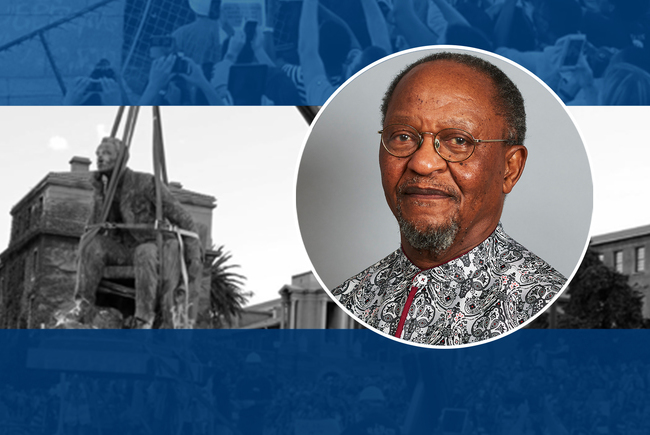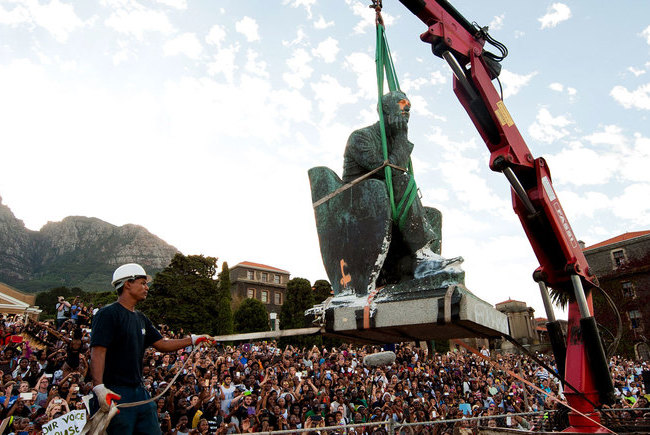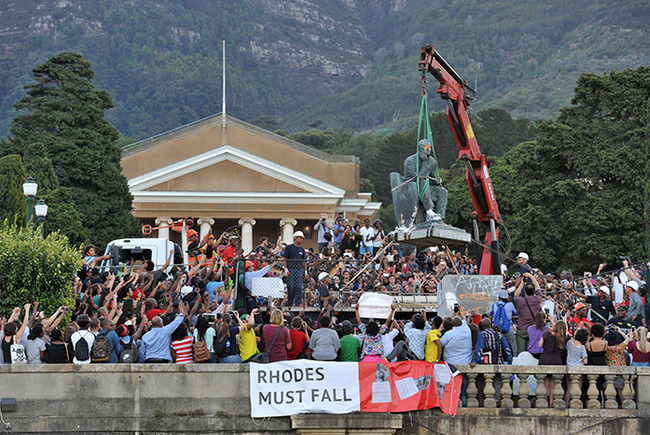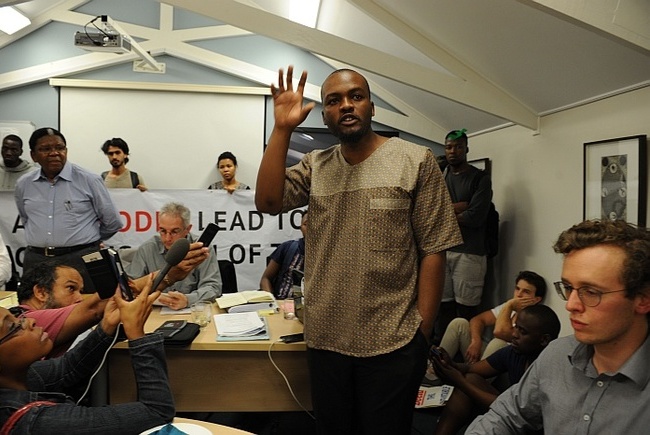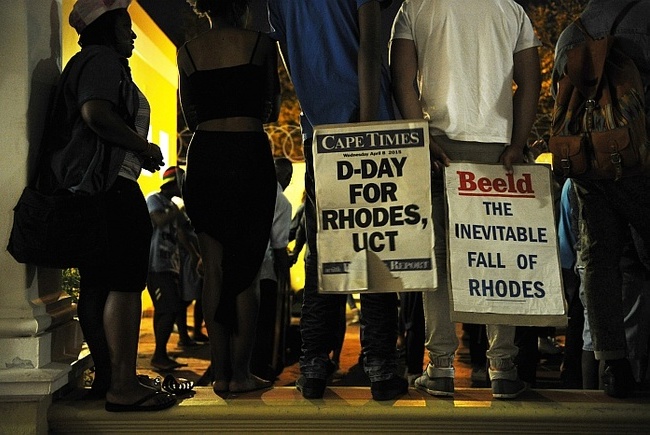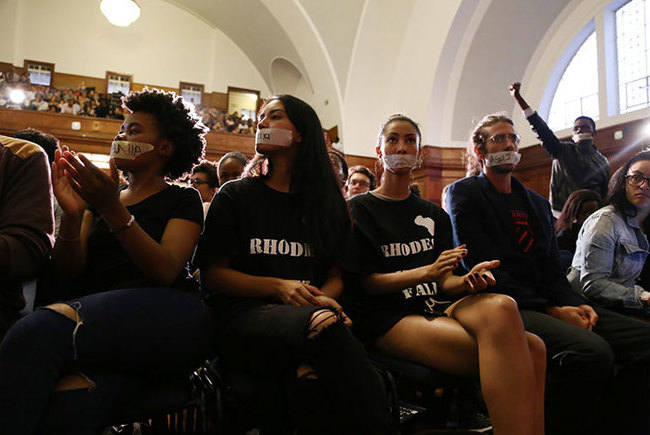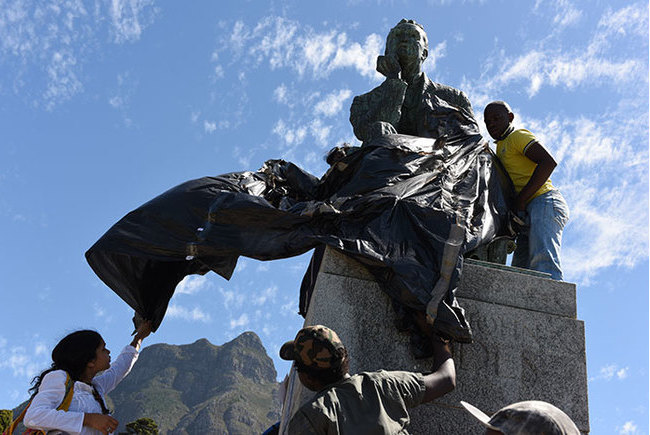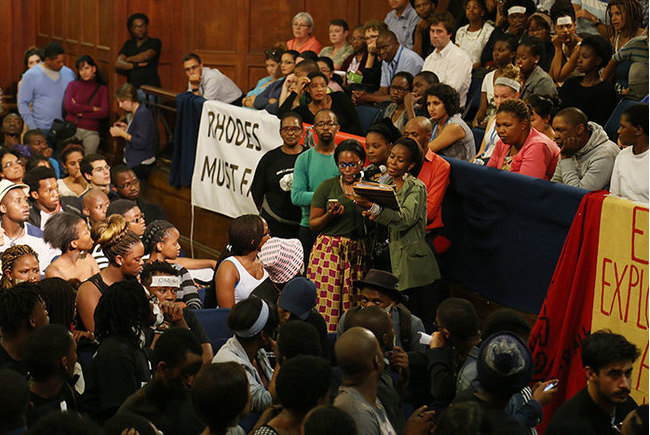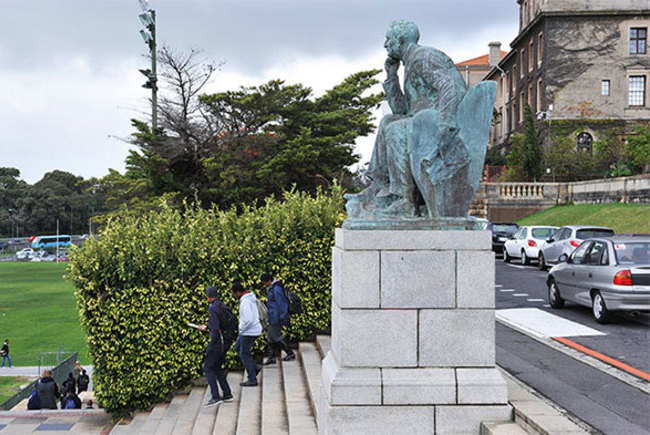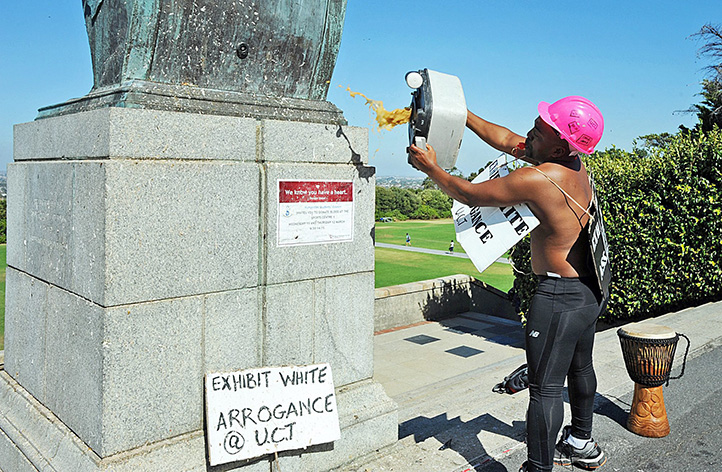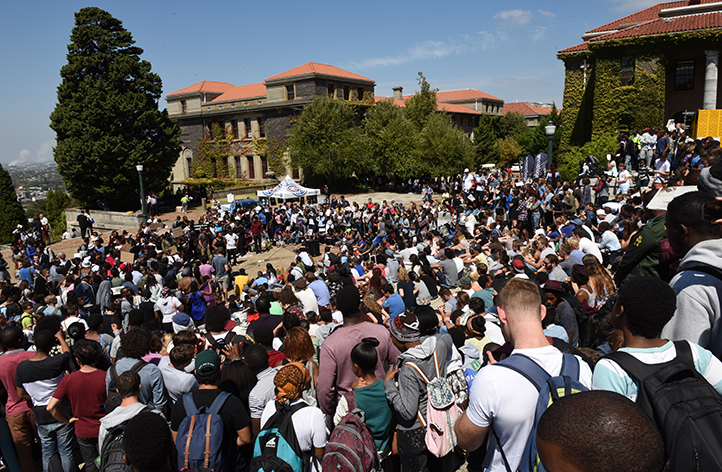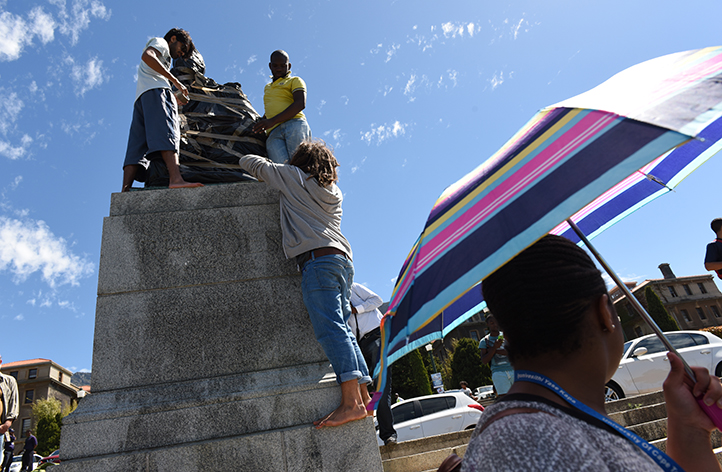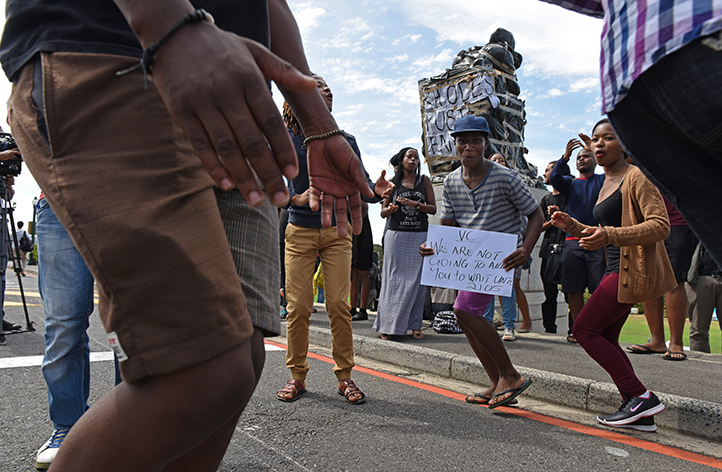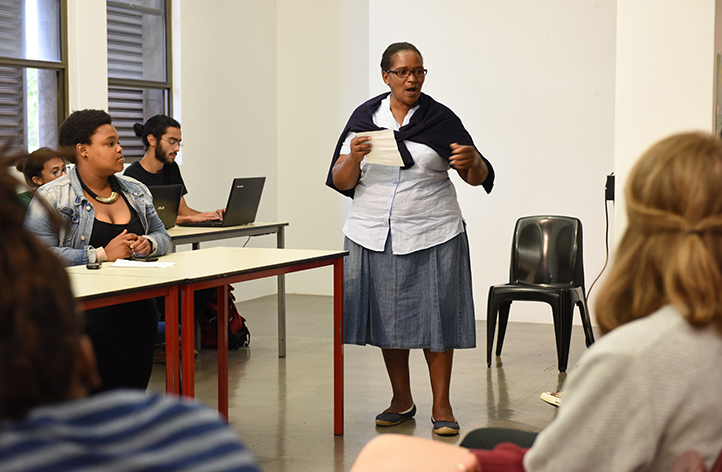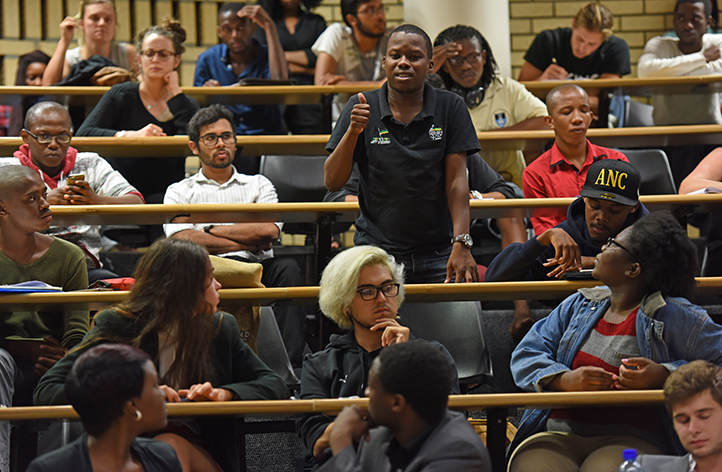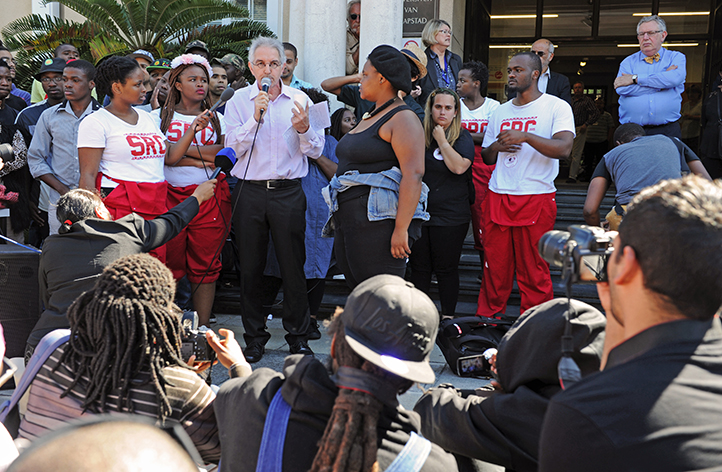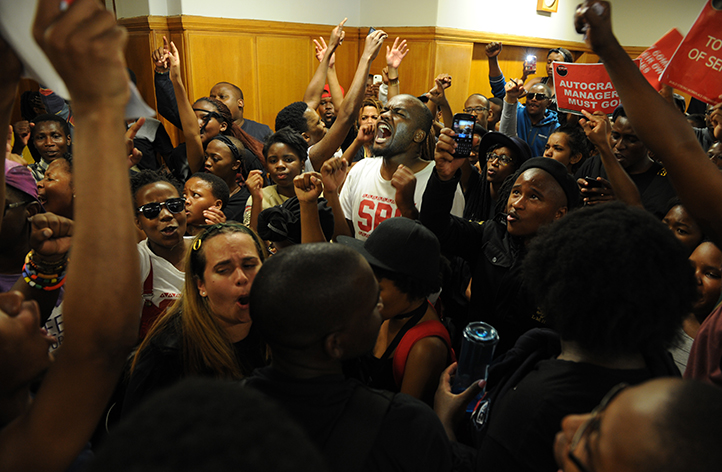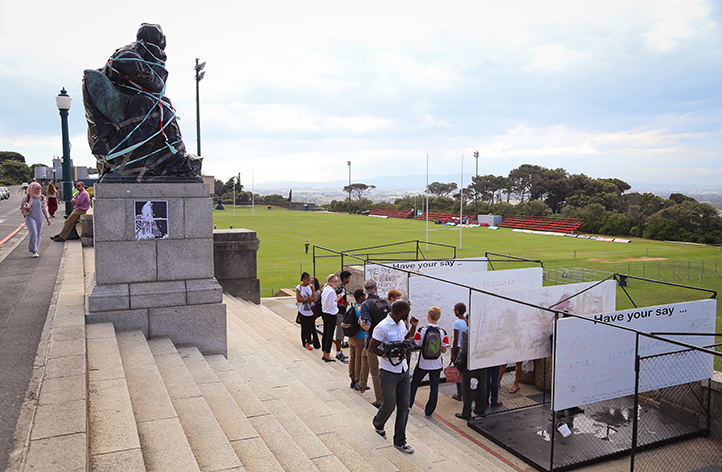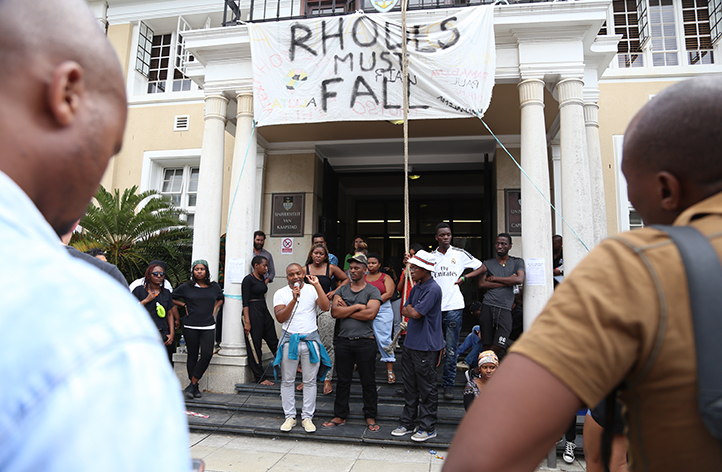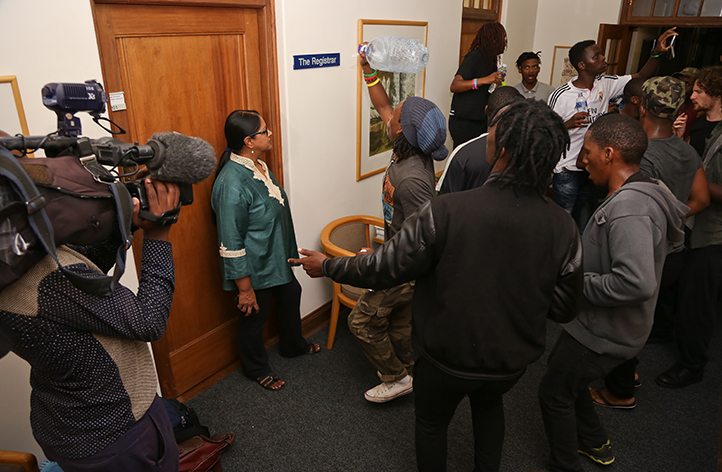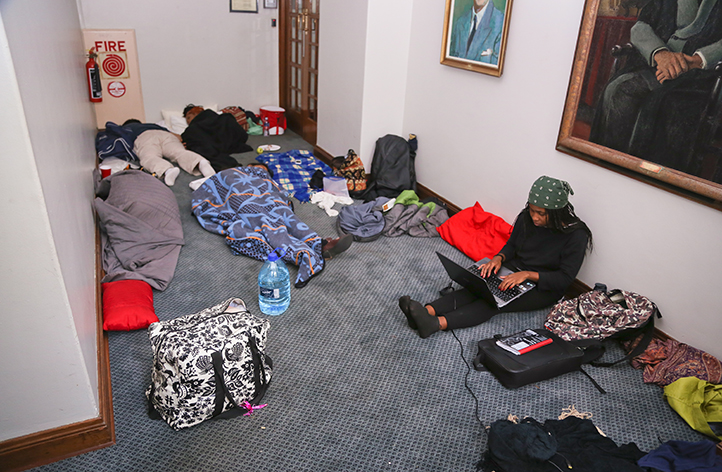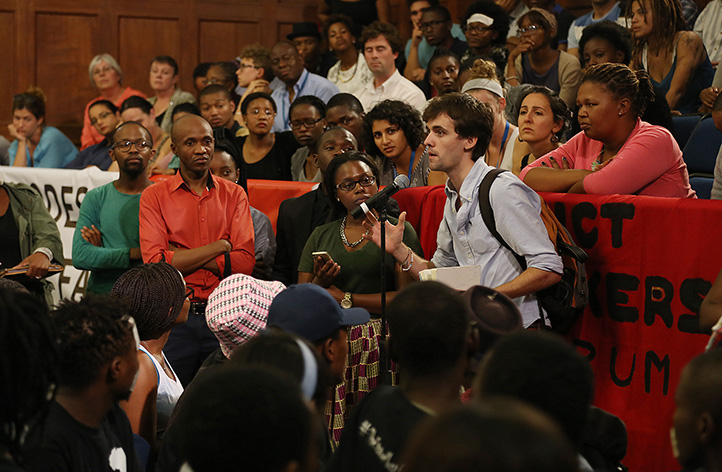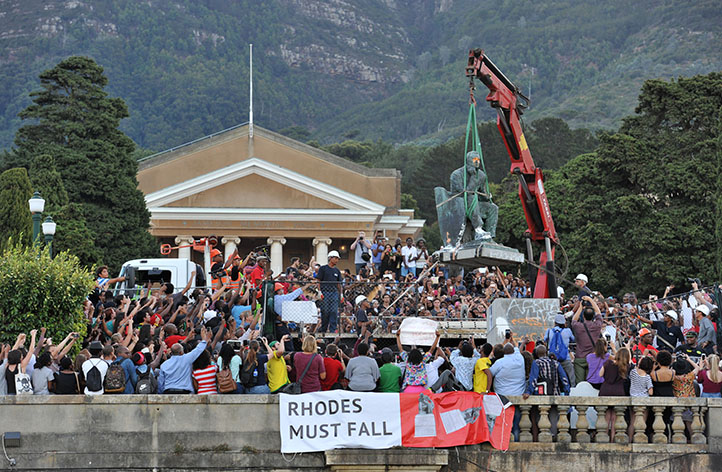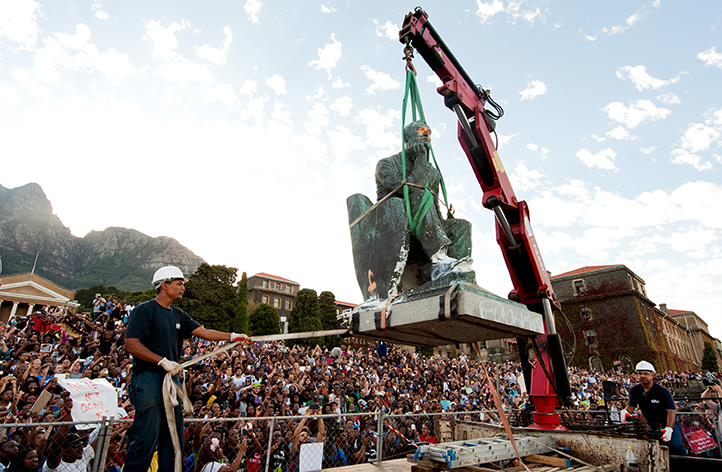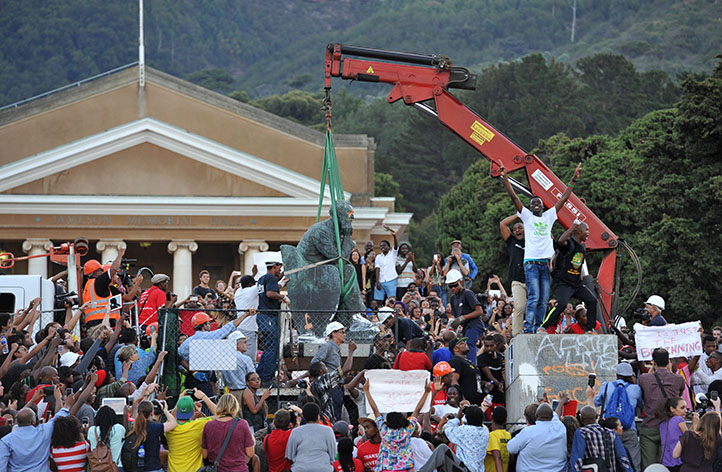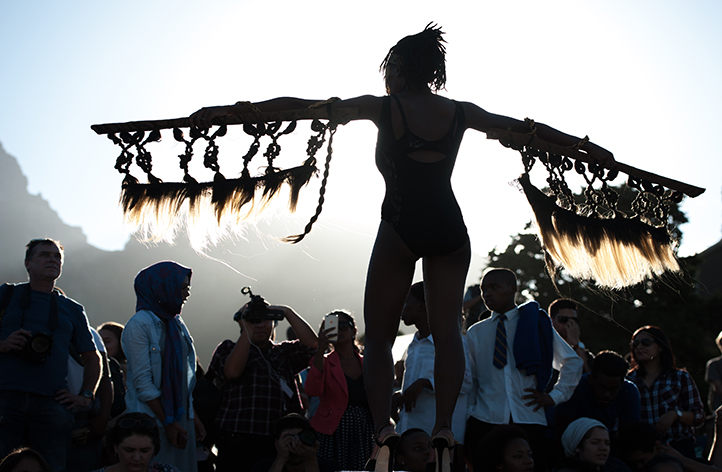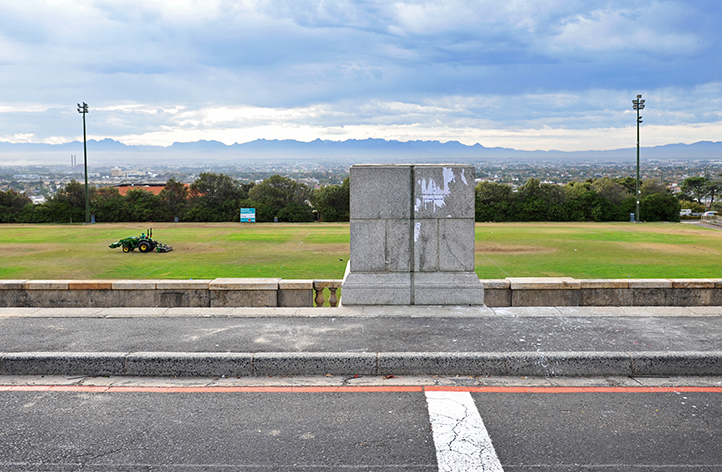UCT Academics Union statement on #RhodesMustFall
01 April 2015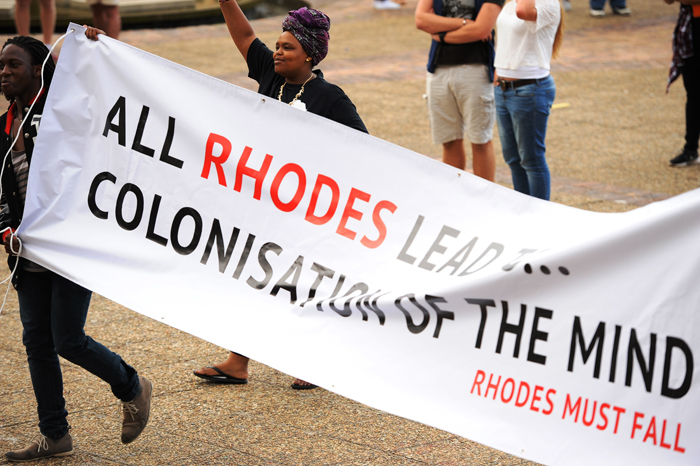
Regardless of race, gender or rank, we are committed to excellence in higher education; and to the training of the next generation of South African leaders and academics. Engagement, debate and dialogue are essential and intrinsic to the academic project. UCT's failure, over a period spanning decades, to address the institutional racism inherent in the naming of buildings and siting of objects on campus represents a signal failure to engage meaningfully with the symbolism of South Africa's past, and with the university's 'heritage that hurts'.
That it has taken extreme action to bring the university to a realisation that urgent remedial action is required on the statue, and more importantly, for what the statue symbolises for the institution's commitment to transformation, is itself testament to a past systemic failure to successfully engage with and pay attention to the experiences of marginalised voices on campus, especially Black students, academics and other staff. The AU acknowledges and accepts that it has been complicit in this failure. Had the university, including the AU, been more attuned and empathetic to these issues, the protest might not have taken the form it has.
It is the AU's position that the statue has no place in its present position on campus. Nor is it relevant whether or not a majority of students, staff, alumni or Council members believe that the statue should be moved. That the statue is not appropriate on campus in its present position, where members of the university community are confronted with its hurtful symbolism on a daily basis, should be self-evident.
The AU believes that removing the statue from its present position is an essential first step towards creating the space for engagement, debate and dialogue on the pressing matter of institutional transformation at UCT. The AU calls on the Executive, Senate and Council of the university to support the call that the statue should be removed as a matter of urgency. We understand that constituencies external to the university, such as the South African Heritage Resources Agency (SAHRA), might need to be consulted. Should they be necessary, these consultations should commence as a matter of utmost priority so that delays in coming to a resolution on the statue are kept to an absolute minimum.
The statue, of course, has broader symbolism, raising important questions about structural and institutional transformation. As an important UCT constituency, the AU agrees with the students that there are specific issues relating to transformation that require the urgent consideration and engagement of academic staff. The most pressing of these relate to:
- the institutionalised discrimination, including racism, sexism, homophobia and transphobia and ableism, experienced by staff members at UCT;
- questions relating to curriculum content and design, and whether these are as appropriate as they should be in the context of transforming higher education in South Africa;
- ensuring greater transparency of the ad hominem process, to ensure that artificial barriers are not being placed in the path of marginalised staff members seeking promotion.
Starting in the second term, the AU will convene separate fora on each of these topics. These fora will engage members, as well as important stakeholders and interest groups, and will specifically seek to provide a platform for the careful articulation and identification of problems, as well as ensuring that marginalised groups are provided a safe and responsive space to express their views. Our first task is to listen, to understand, and to empathise. Thereafter, we urgently need to find and propose solutions and policies that address these in such a way to ensure that the transformation of UCT is advanced.
Transformation – and the challenging of institutional racism – is not an issue important only to a few sections of the UCT community. If we all stand together and openly embrace and enact transformation, we will contribute towards a more inclusive, and unified university.
The engagement proposed represents a significant shift for the Academics Union at UCT. For too long, the Union has been too parochial, concerned only with relatively uncontroversial questions of working conditions, and representation of members' concerns and grievances with UCT's management. The AU has no intention of abandoning or downscaling these activities. However, by taking on the issues above, we will be able to more meaningfully represent all UCT academic staff, and thereby build a stronger Union.
The UCT Academics Union
27 March 2015
 This work is licensed under a Creative Commons Attribution-NoDerivatives 4.0 International License.
This work is licensed under a Creative Commons Attribution-NoDerivatives 4.0 International License.
Please view the republishing articles page for more information.
#RMF Scholarship Fund and Public Lecture
Following an initiative of the Rhodes Must Fall (RMF) Scholarship Committee as proposed by student activists at the University of Cape Town, the university has launched the #RMF Scholarship Fund and hosted an RMF public lecture on 9 April 2021. The lecture will be hosted annually hereafter.
The Rhodes Must Fall Scholarship Fund is a new initiative that aims to raise funding to support students engaged in scholarship around the decolonisation of higher education.
Looking back to 2015
Removing Rhodes: a photo essay from April 2015
After one month of rolling protests about UCT’s colonial symbols and heritage, and calls for greater transformation, the statue of Cecil John Rhodes was removed from campus on 9 April 2015. We looked at the events leading up to its removal through a photographer’s lens.







